Jose Gomes
Reading, 2018-2019
The ball is a magic toy.
Other toys come with manuals. The ball does not. Children get a ball and have a world of possibilities at their disposal. They can enjoy themselves as they please. There are no limits to their imagination. They can explore their toy in any way they like.
That reasoning should be applied to football. After all, there is no single correct formula for playing the game. In practice, though, we see many teams producing a mechanical type of football, with movements so patterned that there is no space for improvisation – including from those players who attract most people to the stadiums.
Improvisation ends up frightening many coaches. I’m a coach, and I fully understand the dilemma. The continuity of our work depends on the results we achieve on the pitch. That is only natural. The problem is to demand immediate results. In this context, not every manager will leave room for his players to have fun on the pitch.
At this point, it is necessary to stress that fun is not synonymous with irresponsibility. Having the pleasure of playing, and doing it for the benefit of the team, are not mutually exclusive. As I see it, predictable football loses its essence. It is almost as if it is no longer a game.
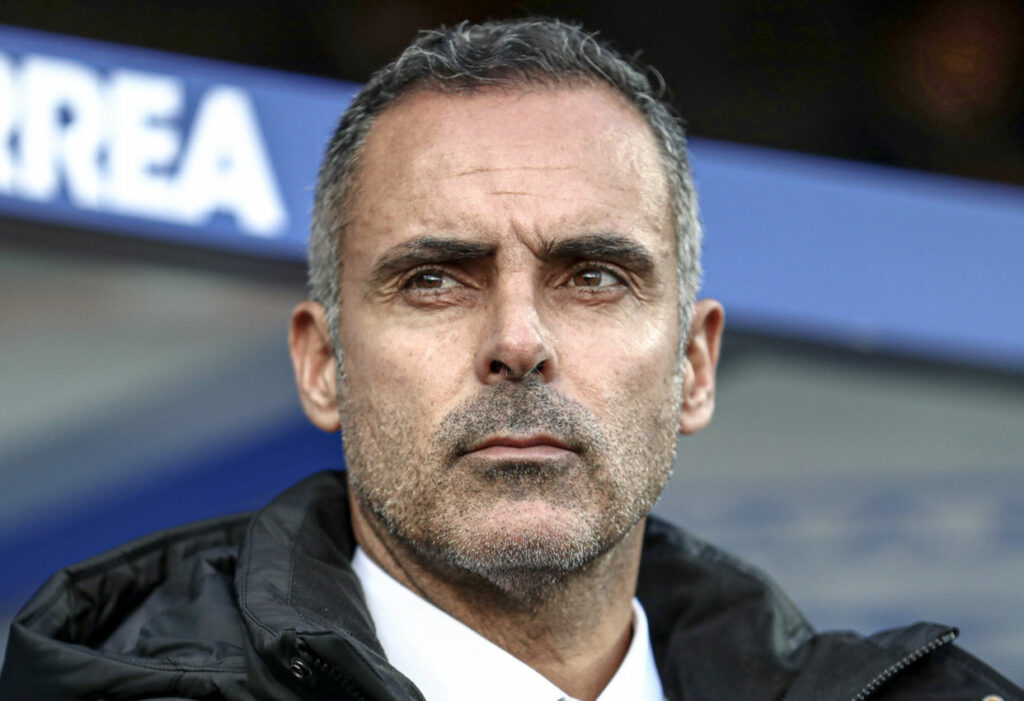
The way I see football is a reflection of the way I see life. My search for the aesthetic sense of the game is the same as my search for the world. I seek to find the beauty in things and enjoy them.
My passion for football comes from my childhood. I dreamed of being a professional player. I remember those times that I would sneak into the Estádio das Antas, the old home of FC Porto, to watch the team training. The stadium was relatively close to my grandparents’ house. However, if I asked for permission to go and watch the training session, it would not be granted. So, I used to go there on my own, and count on the generosity of some unknown adult in the queue to say he was with me.
To this day, I still have vivid memories of my skin shivering at the sight of the pitch. I always wanted to be part of the game.
I played in the youth teams at Valadares FC, which back then was a third-tier club in Portugal. But then came military service and, with it, the realisation that my level as a player was limited. In other words, I wasn’t good enough to reach those levels that gave me goosebumps.
“I felt prepared, but our start was disastrous – we lost seven of the first eight games”
From that point on, I followed the university path. I started to study the game, and my life took another direction. Paços de Ferreira, at the time in the Portuguese second division, gave me the first real opportunity in my career. As a physical trainer, I joined the technical staff of the late António Jesus.
I was so excited to experience it that my interest went beyond my role. I wanted to learn everything from everyone. In just one week of working together, Jesus asked me if I intended to become a coach. I said yes, but made it clear that I wasn’t looking to take his job. I intended to learn from him, to get there one day. At the time, I thought it would take me 10 years or so for that day to come.
It sounds like a lie, but that’s precisely how long it took. After a decade of conversation with mister António Jesus, during which time I spent working as a physical trainer and assistant coach, I received my first invitation to take charge of a team. It was the same club, Paços de Ferreira, that opened the doors for me again.
I felt prepared, and I thought my ideas would be enough for us to be the best team in the league. But reality imposed itself. Our start was disastrous. We lost seven games in the first eight rounds, and I was fired.
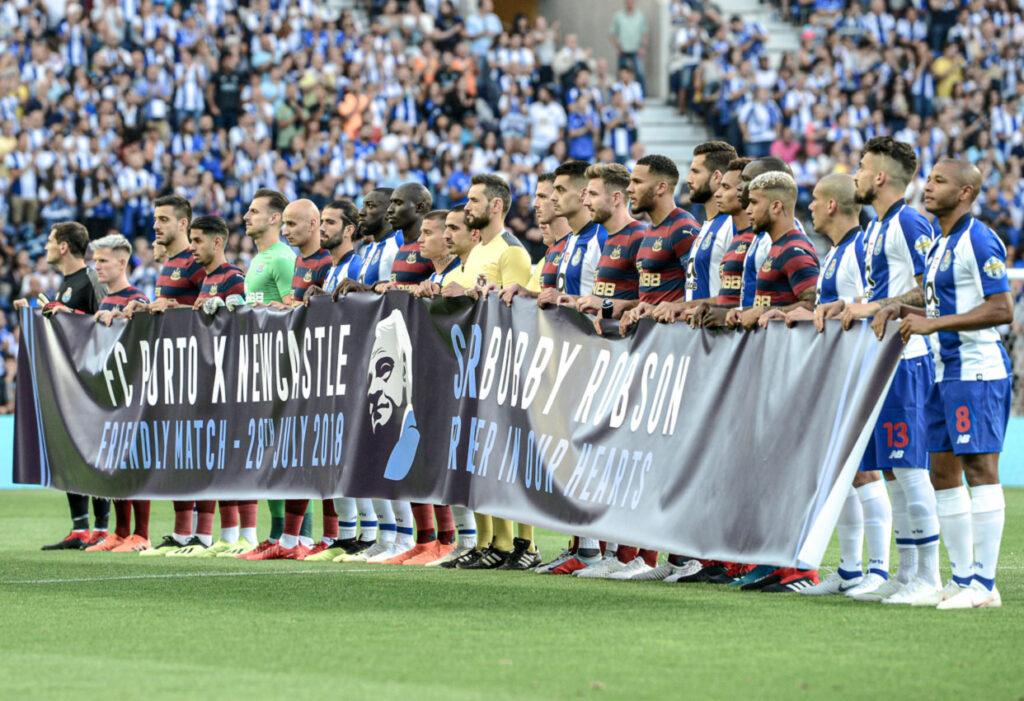
I was not as prepared as I imagined. Technical knowledge is only one of the parts that make up a manager’s role. At that moment, for example, I wasn’t ready to deal with the directors.
The job lasted only a short time, but it was enough for me to realise how much external factors influence performance on the pitch. When we try to explain football through a single area of science, we make a mistake. It doesn’t matter which part you choose. The explanation will be poor.
How can we explain the human being using only one area of science? We are complex. Football is the same. It is simplistic to think that the problem of a team exists only in the technical, physical or psychological side.
The frustration of making wrong decisions is an efficient way to evolve. Today, I am a very different professional from the one who lasted a short time in his first experience as a head coach. Defeats are a stimulus, but the passion for what you do is always the ultimate fuel.
“I dreamed of having an opportunity in English football, but it wasn't coming”
And when the subject is a passion for football, Bobby Robson comes to mind. He was the personification of love for the game. In my college days, I would often skip lessons to follow Porto’s training sessions.
There would be no class that could teach what I learned just from seeing Bobby Robson’s way of working. He was demanding, yet a man of affection. You could tell the players liked him. He was in his 60s then, but he would still engage in training in a delightful way. Those training sessions left their mark on me for the rest of my life.
After Paços de Ferreira, I went to other Portuguese clubs, gaining more experience as a head coach. Then, in 2008, I received an invitation from Jesualdo Ferreira (below) to be his assistant at Porto. It was a four-year partnership. From Porto, I followed him to Málaga, in Spain, and to Panathinaikos in Greece.
I never saw that opportunity of returning to the position of assistant as a step backwards. It was valuable to spend that period alongside a coach with so much experience, but it was also my opportunity to join a club like Porto. The same club that inspired me to skip lessons to follow their training sessions.
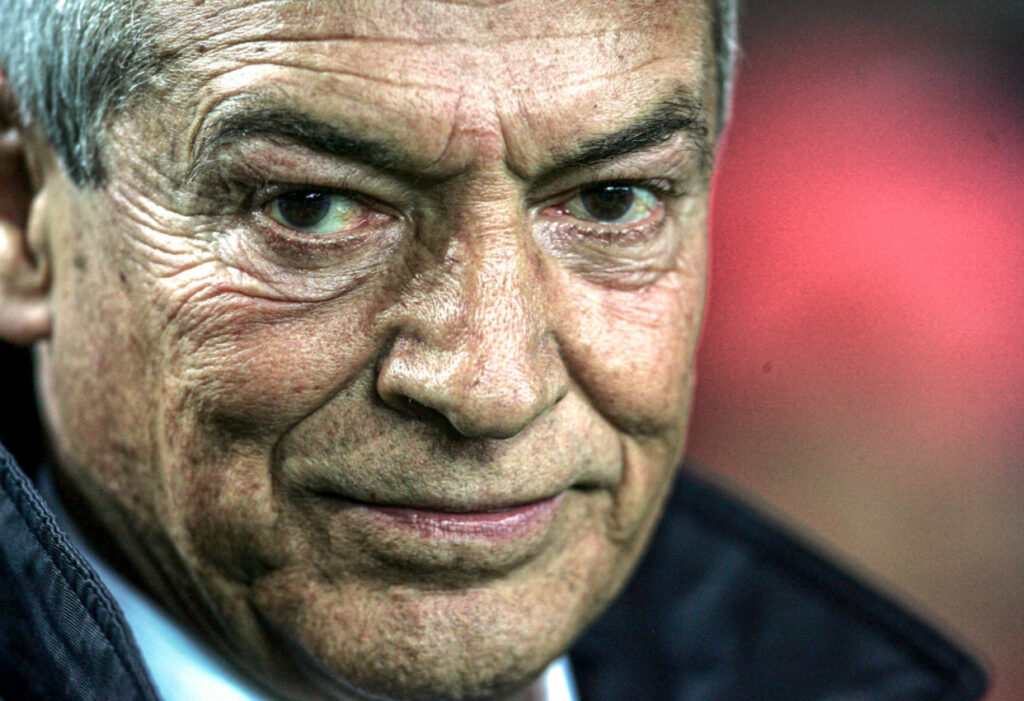
At the end of that partnership, I resumed my path as a head coach. I felt ready for challenges again. In fact, I had become a manager with much more to offer.
The opportunities that followed were all away from home. First, I was in charge of Videoton in Hungary. Then I moved to Al Taawoun in Saudi Arabia – the same team I am with now, for my third spell at the club. Until 2018, I was between Saudi Arabia and the United Arab Emirates.
During that time, however, I wanted to work in England. I dreamed of having an opportunity in English football. But it wasn’t coming, and I had to move on.
Sometimes working in less recognised football markets provides managers with an essential step. Achieving financial independence allows you to be more rigorous with your ideas, and it makes you less vulnerable in your relationship with the clubs. Financial autonomy feeds the courage to not accept injustices.
“We turned a hopeless situation around quickly and the fans embraced us”
That was one of my goals when I migrated to football in the Middle East. But, after four years, I wanted to return to Europe. And it was Rio Ave, in 2018, that gave me the opportunity to return home.
Again, my experience in the Portuguese top division didn’t last long. But, this time, it was for good reasons. We managed to do a great job at Rio Ave. The club had changed practically the entire squad from the previous season. Only five or six players remained in the group. Despite the restructuring, we managed to surprise people with a great start. We had positive results, but we also played attractive football that was praised by many.
In this context, the invitation from Reading came up. The club was struggling in the Championship, threatened with relegation. For me, however, it represented the opportunity I had dreamed of for so long.
I couldn’t just turn my back on those who had allowed me to return to Portugal, however. It wouldn’t be fair to let them down, so I told Reading that the conversation was not with me. They would need to settle with Rio Ave. Meanwhile, I wondered if it was worth leaving a team with momentum for another one in crisis. After a lot of reflection, I decided it was time to face a new challenge. These opportunities don’t come along all the time.
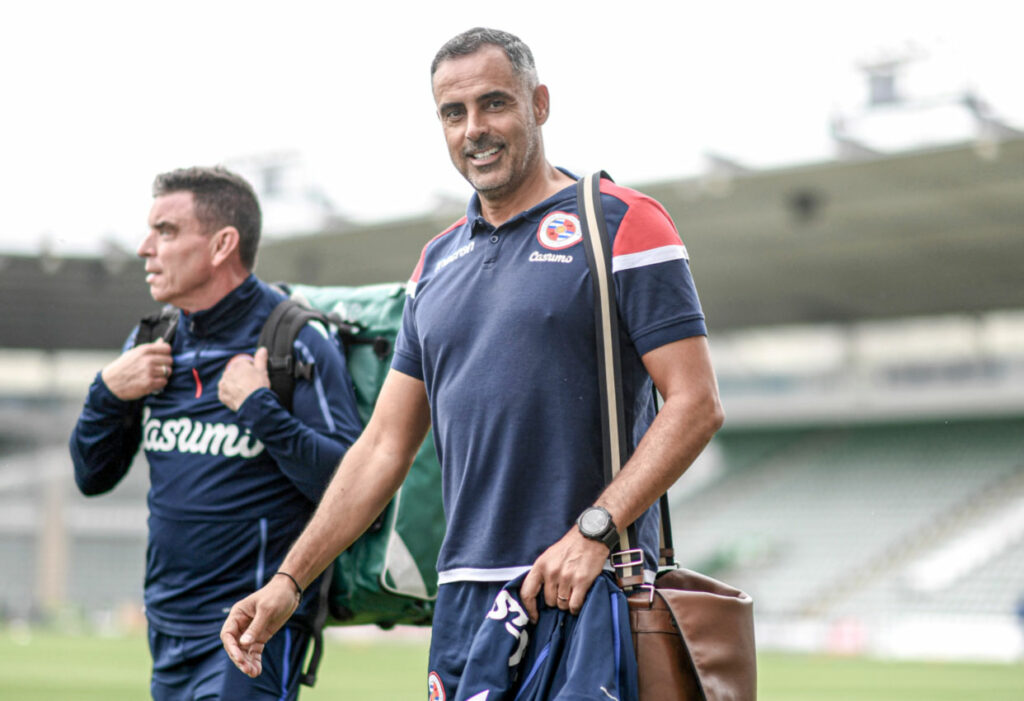
With the agreement between the clubs, I remembered Bobby Robson’s training sessions. I thought of the packed stands of the English stadiums. I pictured myself on the edge of the pitch at one of those intense games we see on television. With all of this in mind, I headed to England.
I found Reading in a terrible situation. Things were not going well at the club, in all aspects. When I arrived, I realised that nobody there had the slightest hope of avoiding relegation. Nobody. Directors, players, fans and local journalists thought that relegation was irreversible. The feeling was one of resignation. Before my arrival, the average attendance in our stadium that season had been around 6,000.
As a result, I consider that my period at Reading was a pretty good one. We turned that hopeless situation around very quickly. We got six wins in the later stages of the league and finished seven points clear of the relegation zone. The fans embraced us during the recovery and, once again, the stadium was full. My English dream had got off to a spectacular start.
Preparation for the following season did not turn out as I would have liked. After everything that had happened, I expected the board to take my opinion into account, at least a little, in the process of shaping the squad.
“Expecting a new coach to improve everything in six games is almost like expecting a miracle”
That’s not what happened. I could see the directors’ mistakes, and there was nothing I could do about it. I confess, it was a disheartening situation. From that, I learned another fundamental lesson for any coach: the wrong things around us can’t take our focus away from the principal duty, which is taking care of the team.
I was no longer happy. During pre-season in Marbella, in Spain, we were still without a properly formed squad – we had 15 under-23 players in the group. When I found out about the new signings, without being consulted, I told the board that I was leaving. I did not want to be held responsible for mistakes that were not mine. The club had spent money that could have been better invested. I was persuaded to stay, with the promise that my suggestions would be heard.
In the end, the final squad was far from ideal. I didn’t want us to spend more; I just wanted us to spend better.
The season started on a wave of discouragement. On the pitch, we didn’t perform. The results were far below expectations, and the club decided to end our relationship.
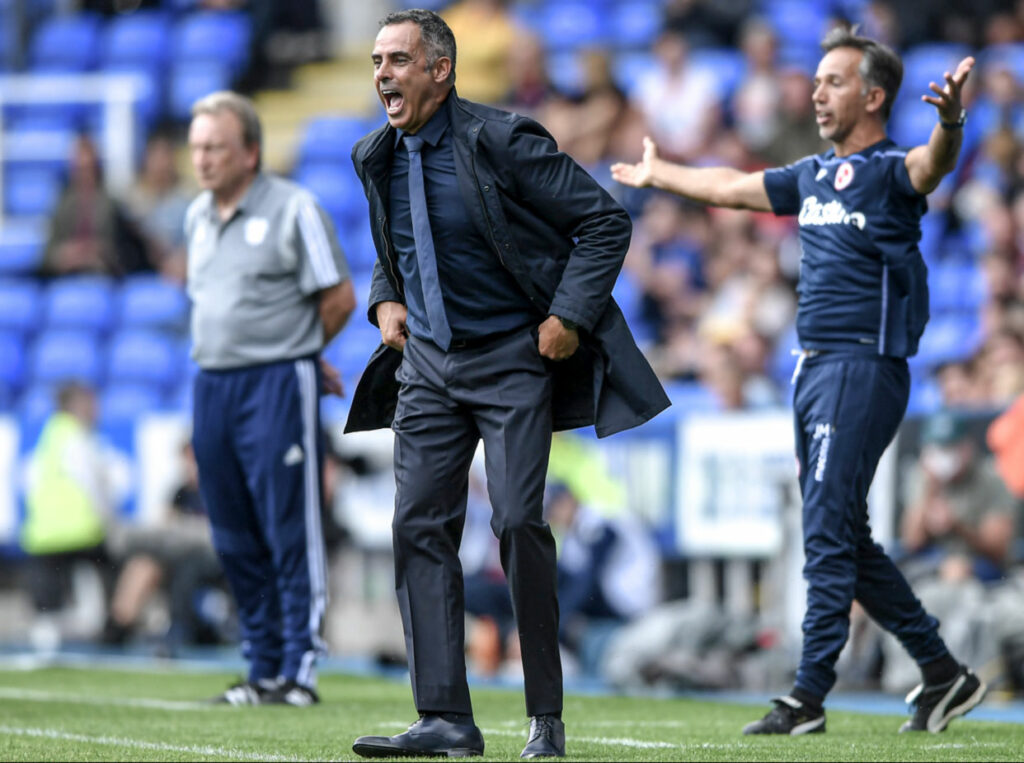
Then came the possibility of returning to Spanish football, where I had been years ago as an assistant coach. I took charge of Almería, and I experienced similar sensations to the ones I had in England.
In other words, I think we did an excellent job there in the period that we were allowed to work. Out of 42 games in the Spanish second division, we led the team in 36. We played entertaining and efficient football, even when we were up against rivals from the elite division in the Copa del Rey. We helped develop young footballers, who are now at a higher level.
“I want to work at a club that allows me to dream of a European title”
Only God knows if we would have got promotion if we had stayed until the end of the season. Changing coaches after 36 rounds, with the team in third place, is to throw away all the work done since pre-season. Direct promotion was unlikely, but it wasn’t impossible. Spain’s second tier is very balanced – anything can happen.
The option of changing manager at that moment did not seem to me to be the wisest. And that’s not about the quality of the person who took over. The coach needs time to do his work. Expecting the new one to improve everything in six games is almost like expecting a miracle.
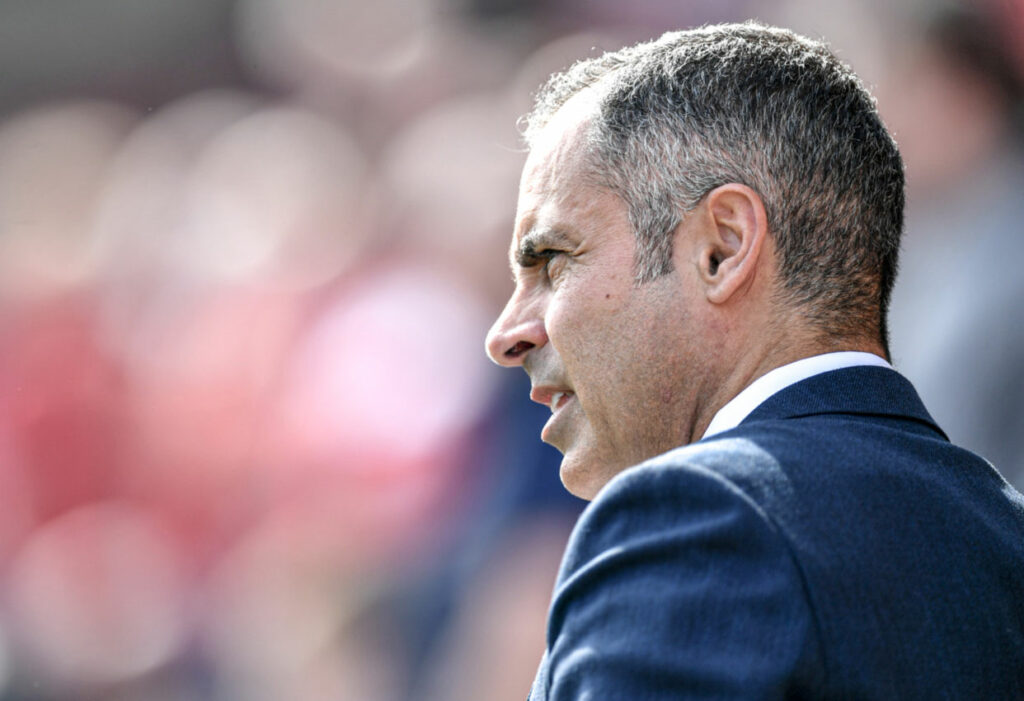
Now, as I said, I am back in Saudi football, in my third spell at Al Taawoun. While I work hard and enjoy the current challenge, I dream of old aspirations. I haven’t given up hope of becoming a Portuguese champion. I want to win the league in my own country, and I want to work at a club that allows me to dream of a European title.
Sometimes things don’t happen in a straight line. With a few twists and turns, however, you can get there.
After all, if you have a ball at your feet, then you have a world of possibilities in front of you.

José Gomes



